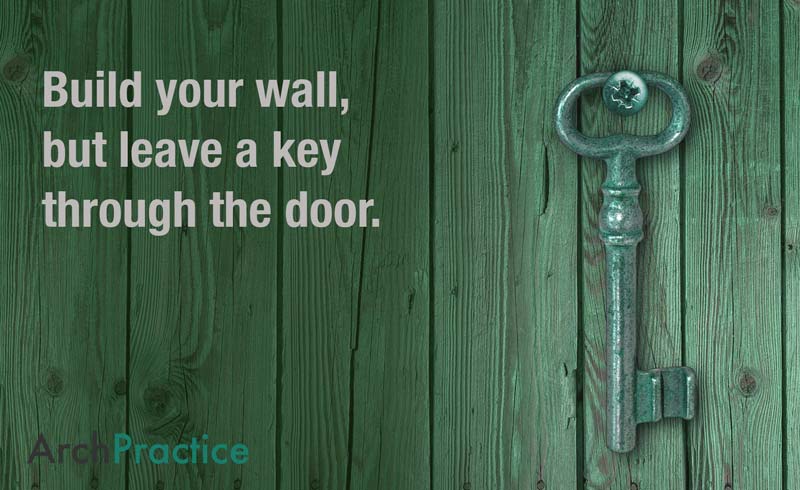I’m sure this isn’t the first time you are hearing this, but all of our fancy communication devices are ruining our lives. It is a double edged sword. The phones, tablets, computers, and implants (ok, we aren’t quite to implanted communicators) mean that we are always connected and can always be contacted. At first, that seems helpful, but it quickly hurts our wellbeing.
Have you ever been enjoying dinner with a friend, family member, or colleague when their phone vibrates and they (not so) politely excuse themself to take a work call or send a critical email?
Or worse, have you been that person because you want to provide the best service?
I’ve definitely been that guy, but I’m here to tell you that you can provide excellent service while leaving work at the office! It can be done and it will make you a better employee or consultant.
In fact, checking out of work lowers your stress and lets you recharge so you can do more with your time while in the office. So put your phone in silent-mode and let’s create a plan to get away.
Build Your Wall
Let’s be honest, a boundary is a nice soft euphemism for what we are trying to do. Instead, we need to build a wall (don’t worry, I’m not going there.)
My personal wall is that I don’t check email when I am not in the office. I even disable notifications so that I don’t get buzzed or beeped at when a new work email arrives - and this is always the case, even during business hours. When I look at my phone there isn’t a little red circle telling me how many work emails are waiting for me.
Part of constructing the wall is telling clients, colleagues, and your employer about the wall. Let me tell you, this is the scariest part for me. I still have to work up the courage to tell a new client that I don’t check email at night or on the weekends. I’ve found that showing them that there is a door through the wall alleviates their concern and eases my fear.
Give Your Client A Key to the Door
My no-email rule works because I show people a door through the wall and I give certain people a key to open it.
For me, the door is that my clients and colleagues can always call me during off-hours and the key is that I assure them that I will respond in a timely manner if they leave a message. You see, I’m not at work so I may not pick up the second the phone rings, but I will get back to you in a timely manner. Leaving a message gives me a way to evaluate what timely means.
Is someone hurt? Are we about to miss a deadline? Is our client angry about something serious? You’ll get a call back within a few minutes.
Looking for a PDF I sent you yesterday? Can’t find our copy of Architectural Graphic Standards? Are you stuck in a foreign prison being held for ransom by internet scammers? I’ll get back to you when dinner is finished.
Maintain the Wall
Obviously, the wall only works if you maintain it. That means doing what you say you are going to do (not checking emails and providing timely responses to phone calls.)
Exceptions to the rules should be rare, but they do come up from time to time. For instance, if you are solely responsible for something happening then you might need to check-in outside of work hours. However, in that case, you should do what you need to do and leave everything else for when you return to the office.
Maintaining your wall also sets a good example. It tells your colleagues that it is OK to take time away. It might even encourage your clients to adopt a similar policy. Wouldn’t it be great if your client told you not to contact them outside of normal business hours!?!
YMMV
Are you ready send a nasty-gram and tell me how there is no way this can work for you? You have some crazy boss or client who expects you to be available at their whim?
Maybe you are right. Or maybe you just haven’t built your wall (ahem) boundary and given them the key to pass through a door when needed.
I urge you to give it a try, even if you have to ease into it. The strategy will let you enjoy your time outside of work more, you will recharge fully like your phone’s battery, and this will let you serve your clients much better when you are at work. In the end, they may thank you for it.
And remember, you are just an architect. Yes, the work we do is very important and can make a difference in the lives of many people. However, the world isn't going to end if you don't answer your emails for a few days.
